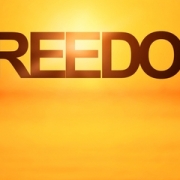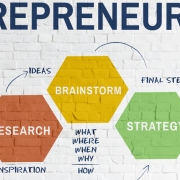In the animal kingdom, there are predators and there are prey. Predators are highly adapted with keen senses, strength and speed. Prey are highly adapted for survival and are masters of their environment. In many cases predators are carnivores and prey are herbivores. In both cases, their survival instincts are highly developed and specialized.
For human beings however, instincts are not enough, the environment is too harsh. Survival requires our capacity for reason. We can either transform nature and acquire property to enhance our quality of life, or we can use force to enhance our quality of life by looting the property of others. How we use our capacity for reason defines us as predators or prey. Murray Rothbard explains the difference in his essay The Anatomy of the State, and the difference between the two is stark. At the Center for Individualism, we call it the economic way vs. the political way, or more simply, persuasion vs. coercion. This could be the most important lesson we teach our children about personal responsibility and ethics.
The Economic Way and the Political Way
In our postmodern world, the economic way is largely ignored in public schools. Thanks to Connor Boyack’s Association for Teaching Kids Economics, Rothbard’s essay has been transformed into an age appropriate (6 -10 year old children) illustrated story book called Fate of the Future. And it is but one of many classics of western civilization that have been translated for parent/child and teacher/student engagement. In Boyack’s The Tuttle Twins series of children’s books, examples include Leonard Read’s classic essay I, Pencil; Frederick Bastiat’s compilation of essays The Law, Ayn Rand’s prophetic novel Atlas Shrugged, and Henry Hazlitt’s Economics in One Lesson, all distilled to their essence.
And this is where the story begins. Not only is a massive hole in today’s public education curriculum being filled, the parents of these children are being introduced to ideas that were denied to them a generation or two earlier. And this is inspiring parents to read the original classics they had never heard of.
Like all successful entrepreneurs, Boyack has uncovered a need and created a new market. In this case, he is peeling away decades of educational propaganda from our government monopoly schools who teach the political way. The beauty of Boyack’s new way of teaching the economic way is in its simplicity. It’s family to family, and it’s not threatening like heavy books can be. Not only is Boyack creating a sense of wonder in the children who read his books, he is reaching a new audience in an older generation. He’s offering an optimistic vision for children and their parents of a future that they can create for themselves.
The Father, the Educator, The Activist, The Entrepreneur
Not only did Connor Boyack take personal responsibility for filling a public curriculum gap, he also founded a public policy network in his home state of Utah. The Libertas Institute’s mission is to defend self-reliance, industry, and freedom. He describes it as a do-tank instead of a think-tank, and it has had a great deal of legislative success. This is perfectly aligned with the latest installment in his The Tuttle Twins book series – The Spectacular Show Business. The goal of this book is to teach children the essential elements of what entrepreneurs do and how they think.
This illustrated book teaches children how to look for opportunities, solve problems, and inspire their creativity. In other words, get them to think about their sense of life as unique individuals. The method used by Boyack is known as Effectuation Theory. Because his audience is 6 – 10 year old children who don’t have a broad collection of life experiences and business associates, the idea is to have them think introspectively. Who am I? What do I know? Who do I know? What can I do? What resources do I have? What can I contribute? What is my plan?
How many of us have ever been asked those questions? By teaching values to children, Boyack is nudging them to bring out their talents, offer value to others, and find their creative talents to serve those needs. And it should begin at this age. After all, the economic way is the cornerstone of civilization.
Paying it Forward
Our first Poetic Justice Warrior, the entrepreneur and economist Jean-Baptiste Say, applied reason to reality and proved to the world that it is producers who create markets, consumers, and prosperity. He invented the term entrepreneur. Our second PJW, the entrepreneur and watchmaker John Harrison, solved longitude for the benefit of humanity. By applying modern technology where traditional methods had failed, he invented the maritime clock industry. Our third PJW is the entrepreneur and inventor Nikola Tesla; he took ownership of the future by harnessing the electro-magnetic power of the universe to meet daily human needs, and he invented the wireless electronic communication industry.
Now we celebrate the entrepreneur and dedicated father, Connor Boyack. He saw that the interests of postmodern statists are not aligned with the interests of individuals who are pursuing the ideals of western civilization. His series of children’s books are designed to help each child answer the ultimate questions regarding their relationships with each other, and their relationship with society at large. Boyack is not inventing an industry as much as he is reclaiming childhood education for parents. And this is badly needed. He’s doing it by leveraging the wonders of technology made possible by Tesla, projecting Harrison’s singular purpose against the prevailing wisdom of the state, and reinforcing the doctrine of Say’s Law for human flourishing. God help those who are dissuaded from developing active minds and choose to identify as Social Justice Warriors.
As a 21st century Poetic Justice Warrior, Boyack is teaching children how to identify the predators, avoid becoming prey, and solve the ultimate problem posed by Rothbard – how do we persuade for legitimate government and roll back our coercive state? It’s the Fate of The Future. To learn more about the distinction, please feel free to take our short Poetic Justice Warrior quiz and be sent the analysis of your results.













